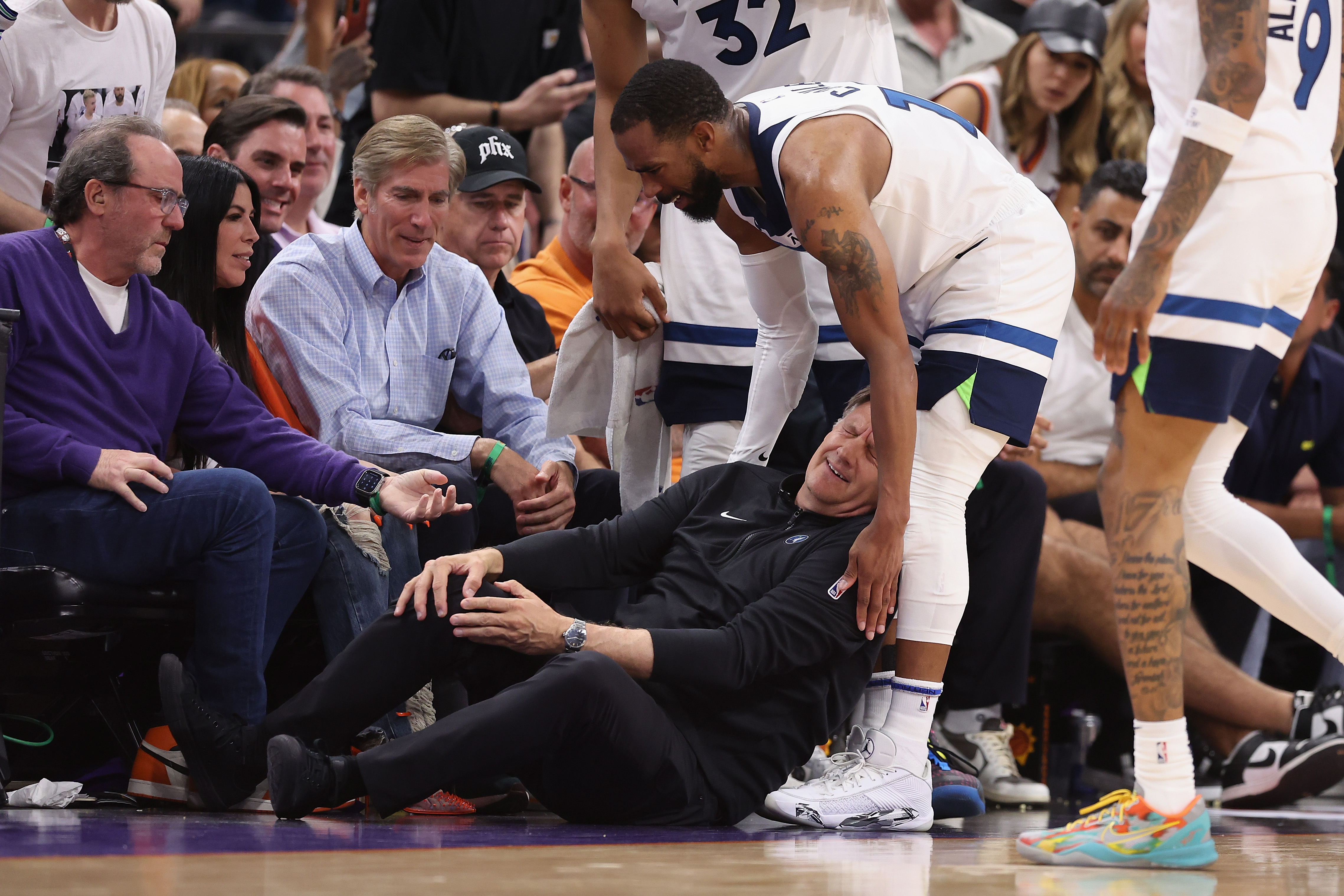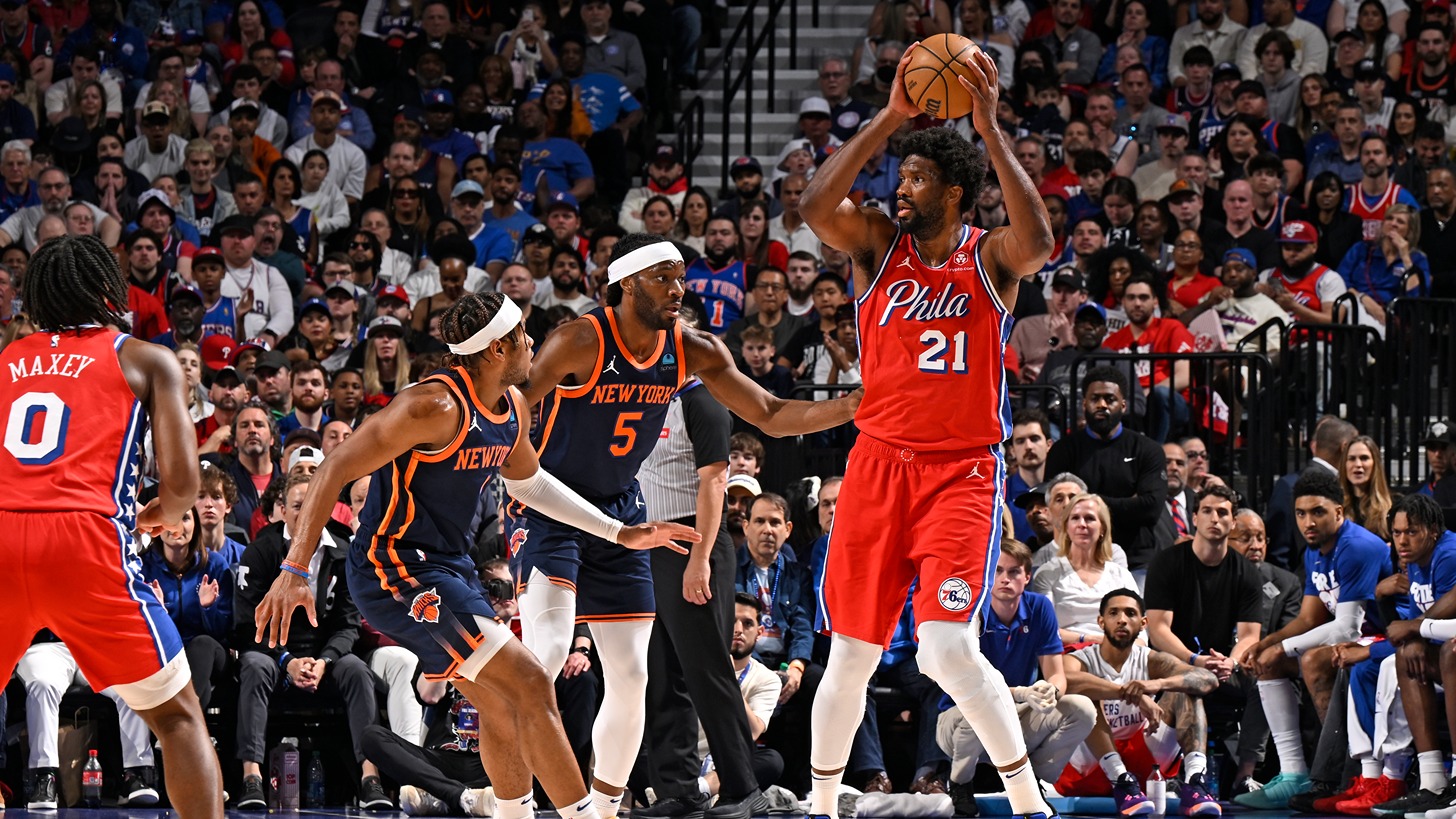
Sam Hinkie was named general manager of the Philadelphia 76ers in May of 2013. That's right -- it's been less than two years. It seems like more, doesn't it?
In that time, Hinkie has engaged in a full-scale rebuild that's simply unprecedented in the history of sports. Acting completely without regard for what opposing teams, the league itself, the local media and even hostile fans think, Hinkie has completely remade the team.
He's combined principles familiar to readers of "Moneyball" -- advanced statistical analysis, exploiting inefficiencies in the market, a total willingness to discard traditional conventional wisdom -- with a shocking amount of patience, and applying it to a franchise that's spent the past 15 years on one failed quick fix after another.
We don't know if Hinkie's plans for the Sixers will succeed. Once again, it's only been two years. But we do know that he's done something no one thought possible: He's made the Sixers matter.
For about a ten-year period -- say, between the latter part of the Allen Iverson era and the hiring of Hinkie -- the Sixers mattered very little in Philadelphia. When it came to attention and oxygen, they were practically invisible. Shockingly low attendance and TV ratings. Not a lot of talk radio discussion. The atmosphere at games, regardless of who was playing, was dead. This was the case through numerous coaching regimes, acquisitions of big-name players, and the comings and goings of Iverson.
During a period when, good or bad, there was always a lot of interesting stuff going on with the Phillies and Eagles, the Sixers haven't been able to say that. The only times between, say 2003 and 2013 that the Sixers got any major local media attention were for the occasional playoff run, big offseason trade, or mascot contest.
NBA
Now, people are talking about the Sixers again. They're debating the process. The Sixers are the topic of discussion and debate, both locally and nationally, with ESPN the Magazine devoting a huge feature (and a #1 ranking!) in its analytics issue.
Not that everyone is on board, of course.
The sense I get is that among people who care about sports in Philadelphia, there are three distinct groups when it comes to the Sixers, which break down roughly into thirds: Group A is those on board with and excited about the Hinkie process. Group B is those strongly opposed to the Hinkie process. Group C consists of those indifferent to the Sixers altogether, for most an attitude that predated the Hinkie era.
But what's important about this is, prior to the start of the Hinkie Era, Group C was a lot more than one third of Philadelphia sports fans. It may have even been two thirds. And if the Hinkie process has any kind of success, it's going to make Group A grow and B and C shrink.
Personally, I lean towards Group A. No, I don't believe in perfect faith that every Hinkie move will succeed, or even that it's going to work at all. But what I do think is that Hinkie is doing something revolutionary, a grand experiment without precedent -- and it's made the Sixers, by a significant margin, the most intriguing sports story in town. And that hasn't been the case in quite some time.
Group B seems louder than it is, mostly because it consists of several of the town's more outspoken media figures, many of whom very clearly either don't understand what Hinkie is doing, haven't the first clue about what "analytics" is or have a personal axe to grind over lack of access. (I can only brace for the moment when Buzz Bissinger decides to weigh in.)
There are cultural and generational divides too: From what I've gathered, younger, more Internet-engaged fans tend to be more pro-Hinkie, old timers, not so much. It's all part of an emerging cultural devide across all sports; the sort of people who think Marshawn Lynch is a punk tend to be anti-Hinkie, while those who love his antics are more likely to support the process.
The other reason I lean towards A is that so many of the frequent arguments against Hinkie, and the current Sixers management, are so disingenuous and in bad faith.
No, the Sixers' plan isn't to be cheap and lose forever. No, they're not moving to New Jersey. And no, the Hinkie plan isn't about the owners stripping the team of assets in order to sell it for a profit -- between TV deals and huge sales of other teams, if selling the Sixers for a huge profit were the goal, they could do that even without rebuilding at all.
No, the Sixers aren't tanking in order to get one particular player, which is always a low-percentage play that depends entirely on lottery luck. And no, we shouldn't be ashamed that the rest of the league objects to what Hinkie is doing -- isn't an iconoclastic plan that pisses off every other team something Philly fans should embrace?
No, it doesn't matter that Hinkie never played -- the Spurs and Mavericks have both won championships in the recent years with GMs who never played in the NBA. He's unproven? So is every other first-time GM. And no, Hinkie's willingness, or lack thereof, to give frequent media interviews has no bearing whatsoever on whether or not he's a good general manager.
This could go any number of directions. Maybe Joel Embiid shows up next winter and dominates the league. Maybe Embiid's a flop but whoever they get in this coming draft forms the core of the next winning Sixers team, along with Dario Saric. Maybe some of these assets get packaged in a trade, bringing in veteran stars in the tradition of Garnett and Allen with the Celtics or James Harden with Houston.
Maybe in three or four years we'll be arguing instead about whether Hinkie is a good enough GM to get the Sixers out of the conference finals. Or maybe the whole thing collapses and the Sixers end up firing Hinkie and making Charles Barkley the GM.
What we do know is that it's an amazing story. And I have a sense it's going to either work out spectacularly, or go down in flames. I feel like someone's going to write a great book about this era of Sixers basketball, either way.


